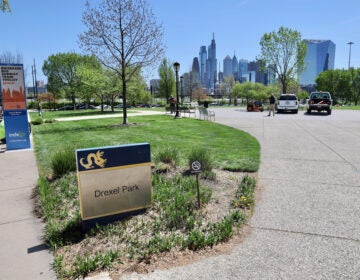Author Michael Bush to speak at third annual Natural Beekeeping Symposium in East Falls
Philadelphia hive enthusiasts are about to welcome one of the country’s best-known beekeepers. Nebraska bee maven and author Michael Bush will appear at the Philadelphia Beekeepers Guild’s 3rd annual Natural Beekeeping Symposium at William Penn Charter School on Feb. 10.
The Beekeepers Guild, a non-profit organization founded in 2009, meets monthly to promote urban beekeeping throughout the region and educate locals on the environmental importance of bees.
Their 2013 symposium speaker is a controversial figure in his field, as an advocate of treatment-free hives: absolutely no medicines, antibiotics or chemicals.
In an era when honeybee hives are disappearing en masse under the burden of diseases, agricultural chemicals, parasites and a widespread fatal phenomenon known only as Colony Collapse Disorder, not everyone is on board with the idea that what bees need is no medicines at all.
“There are people who are pretty resistant because they’re absolutely convinced that it’s impossible to keep bees alive without treatment,” says Bush, author of the 2011 book, “The Practical Beekeeper.”
For his part, Bush claims that modern medicines aren’t doing the bees any good. “Treating = death spiral,” he declares on his website.
Bush’s argument against medicines and chemicals in the hive
Bush says that human meddling in the hives is due to fundamental misunderstandings of the minute ecosystems that keep bees healthy, both among the honeycombs and in the bees’ anatomy itself. For example, he cites cutting-edge research on bees’ digestive systems.
“They’ve discovered that the bacteria that live inside the gut of the bee, that are supposed to be there, actually make a film that protects the gut of the bee” from a range of common bacteria and fungi, he says.
According to Bush, that means that well-meaning hive-keepers who dose their hives with antibiotics to combat a specific infection end up wiping out beneficial bacteria along with the bad – setting their bees up for even more infections down the road.
“So actually, the exact diseases they’re trying to prevent with these antibiotics are the exact diseases they’re making [the bees] susceptible to.”
Bush says it’s a classic example of the scientific human tendency to see everything as an equation: this, therefore that, when in fact the situation involves a myriad of complicated factors. He admits it’s counterintuitive, but insists that medicine for a specific sickness in the hive does not necessarily add up to healthier bees.
Another example is treatments for mite infestations. A few rounds of treatment might kill off most of the mites – for awhile. But ultimately, Bush claims, as “you keep killing off the less virulent mites, the ones that survive are the ones that can reproduce fast enough to keep up with the treatment,” meaning a population of the very hardiest mites explodes as soon as the dose is finished.
“As long as you keep treating, you only keep messing up the ecology in the hive, and keep perpetuating genetics that can’t really survive without all your treatments,” Bush says of the long-term effect of medicating hives. In short, you’re left with “wimpy bees and super pests.”
Letting bees ‘take care of themselves’
Bush, who has been keeping bees since the 1970s and speaks throughout the country on his expertise, advocates a larger view of beekeeping than simple cause-and-effect.
“Science measures things with a micrometer, and they probably ought to measure by pacing it off,” he says of embracing a multi-tiered view of the field. “When you’re keeping several hundred colonies of bees, you can get a pretty good sample of what exactly works.”
Bush will share the knowledge he’s gained with symposium guests, in a morning session titled “4 Basic Steps to Healthier Bees.” The afternoon will include “Building Up Your Beeyard” and “Simple Queen Raising.” Attendees can register online through the Guild’s website ($25 for members, $35 for non-members). The symposium will take place at Penn Charter from 10 a.m. to 4 p.m. on Sunday, Feb. 10.
But among all the beekeeping advice, Bush’s most important message is simply to get out of the way of nature – even when things are at their most bleak.
“Two winters ago, it was 27 below zero every night for a couple of weeks,” he says of keeping his own bees in the frigid Nebraska temperatures.
How did he help his bees survive?
“I didn’t do anything,” he says. “They take care of themselves.”
For tickets, go to phillybeekeepers.org. For more information on Michael Bush, visit his website.
WHYY is your source for fact-based, in-depth journalism and information. As a nonprofit organization, we rely on financial support from readers like you. Please give today.




